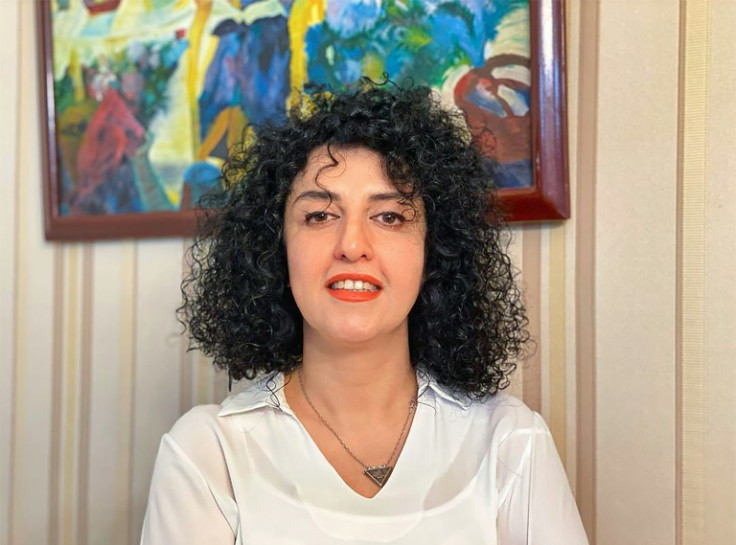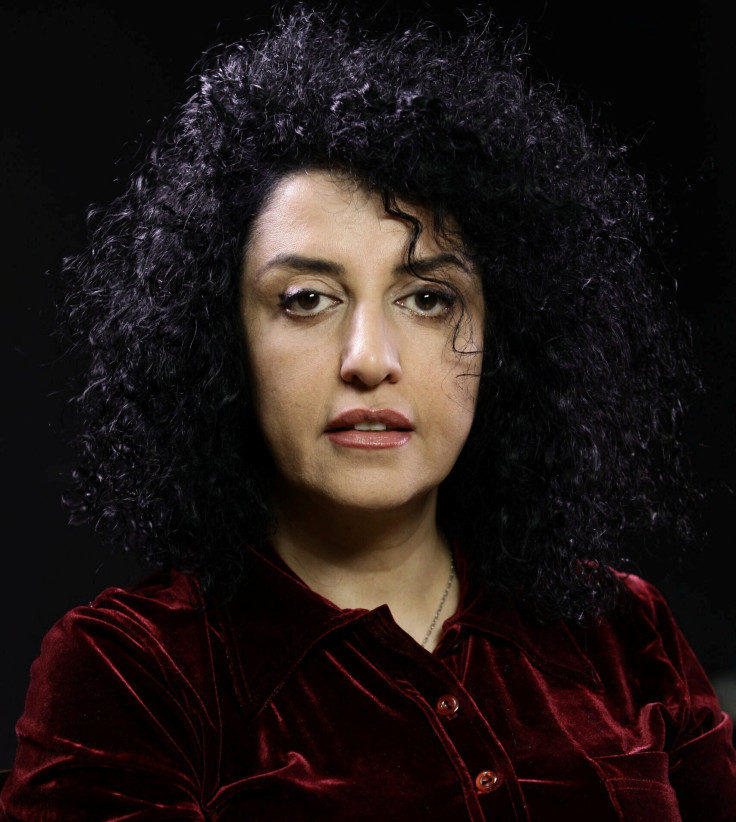Nobel Peace Winner Narges Mohammadi Continues Hunger Strike In Iran's Notorious Prison
After refusing to wear the hijab and being denied hospital treatment by Iran's morality police, activist Narges Mohammadi continues her hunger strike.

Narges Mohammadi started a hunger strike on Monday this week, 6 November, while imprisoned in Iran's notorious Evin prison.
While being held by the Iranian authorities in Tehran, Mohammadi reported that the prison had failed to grant her access to the appropriate medical care.
Last week, the authorities prohibited the 51-year-old from attending her hospital appointment for heart and lung treatment. Mohammadi was blocked from leaving the facility for refusing to wear a headscarf, considered mandatory, to the hospital visit.
This news comes after the women's rights advocate won the Nobel Peace Prize on 6 October. The prize winner was arrested by Iran's morality police, with charges relating to meddling and politicising the issue of human rights.
The charges against the activists also include spreading propaganda against the Islamic Republic.
On Monday, before Mohammadi announced her hunger strike, the Norwegian Nobel Committee, which awarded Ms Mohammadi the Peace Prize for "her fight against the oppression of women in Iran" said it had deep concerns about her wellbeing.
The committee went on to urge the Iranian authorities to give Mohammadi the medical help she needed.
In a statement, the Nobel Committee said: "The requirement that female inmates must wear a hijab in order to be hospitalised, is inhumane and morally unacceptable."
Mohammadi is currently serving a sentence of up to 31 years imprisonment. The lengthy capture is a result of multiple sentences.
It has also been reported that the women's rights activist has also been sentenced to 154 lashes. It has not been confirmed whether this punishment has been carried out.
This week, the activist HRANA news agency also reported: "Mohammadi has gone on a hunger strike to protest against the authorities' failure to address her demands, including their refusal to transfer her to a specialist hospital."

"This deprivation continues under the order of the prison authorities," the activist news outlet added.
It was also reported by Mohammadi's family, that a group of women who are also being held in the notorious prison in Tehran, started a protest that called for the prison authorities to send Mohammadi to a hospital for treatment.
In a statement that was written before the hunger strike announcement, the activist's family said: "The Islamic Republic's policy of delaying and neglecting medical care for sick inmates, resulting in the loss of the health and lives of individuals."
"According to the diagnosis and echocardiogram of a trusted doctor of the prison, she has been in need of emergency transfer to the heart and lung centre for urgent medical care," the statement continued.
While Mohammadi seeks urgent medical assistance, the family also revealed that "the prison warden announced that, according to the orders of the higher authorities, sending her to the heart hospital without a headscarf was prohibited".
The family also added that Mohammadi is "willing to risk her life by not wearing the 'forced hijab' even for medical treatment".
Under Iran's interpretation of Sharia law, women are forced to cover their hair with a headscarf. Women and girls are also expected to wear modest clothing, including loose-fitting robes to disguise their bodies.
Since 2012, Mohammadi has been imprisoned in Evin prison three times and she has been arrested more than a dozen times for fighting the ill-treatment of women throughout her life.
Since Mahsa Amini was arrested for wearing an "improper hijab" and died in the custody of Teheran's morality police, dozens of 'Women Life Freedom' protests erupted in Iran.
In a letter that Mohammadi wrote to the Norwegian Nobel Committee, the activist described the compulsory hair covering as "a means of control and repression imposed on the society and on which the continuation and survival of [Iran's] authoritarian religious regime depends".
© Copyright IBTimes 2025. All rights reserved.






















